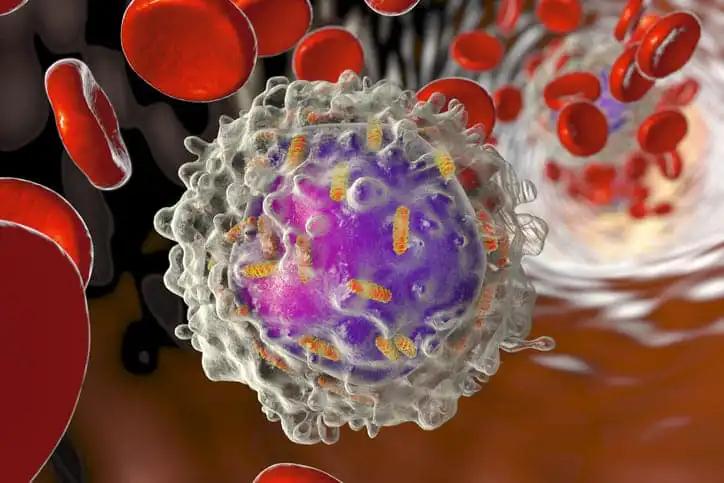KEY TAKEAWAYS
- The study aimed to assess the antitumor activities of CD38/CD47 BsAbs in hematologic malignancies, ALL, CLL, and MM.
- Researchers CD38/CD47 BsAbs showed potent tumor-killing ability with favorable safety and tolerability profiles.
CD38 and CD47 are expressed in many hematologic malignancies, including B-cell acute lymphoblastic leukemia (ALL), B-cell chronic lymphocytic leukemia (CLL), a few subtypes of lymphoma and multiple myeloma (MM) etc.
Song Li and the team aimed to evaluate the antitumor activities of CD38/CD47 BsAbs in hematologic malignancies, including ALL, CLL, and MM.
Researchers conducted a study in which they developed five suitable anti-CD38 antibodies by considering CD47 and CD38 as co-targets for bispecific antibodies (BsAbs) by employing a 2 + 2 “mAb-trap” platform. The activity characteristics of these CD38/CD47 BsAbs were then evaluated using both in vitro and in vivo systems.
Using hybridoma screening technology, researchers obtained 9 suitable anti-CD38 antibodies. All anti-CD38 antibodies were capable of binding to CD38+ tumor cells and killing them via antibody-dependent cellular cytotoxicity (ADCC) and antibody-dependent cellular phagocytosis (ADCP).
About 5 of these anti-CD38 antibodies (4A8, 12C10, 26B4, 35G5, and 65A7) were selected to design CD38/CD47 BsAbs using a “mAb-trap” platform. The BsAbs demonstrated higher affinity and binding activity to the CD38 target compared to the CD47 target, which helped reduce potential on-target and off-tumor effects.
Additionally, the CD38/CD47 BsAbs did not bind to red blood cells (RBCs) or induce RBC agglutination, resulting in significantly lower blood toxicity. The CD38/CD47 BsAbs effectively blocked the CD47/SIRPα signaling pathway in CD38+/CD47+ tumor cells, outperforming IMM01 (SIRPα Fc fusion protein). These BsAbs enhanced their ability to kill tumors through Fc domain engineering by inducing ADCC and ADCP.
Among the BsAbs, IMM5605-26B4 exhibited the strongest inhibitory effect on cellular CD38 enzymatic activity, while IMM5605-12C10 showed the highest capability to induce apoptosis in tumor cells directly.
In the NCI-H929 cell xenograft model, the anti-CD38 antibody 26B4 combined with SIRPα-Fc fusion proteins demonstrated strong antitumor effects, surpassing the efficacy of any mono-therapeutic agents used alone.
Overall, the CD38/CD47 BsAbs displayed potent antitumor effects, with IMM5605-12C10 effectively eradicating all established tumors. This highlighted the potential of CD38/CD47 bispecific antibodies as a powerful therapeutic approach for targeting CD38+ and CD47+ tumor cells.
The study concluded that a panel of CD38 and CD47 targeted BsAbs were developed based on the “mAb-tarp” platform and demonstrated a potent tumor-killing ability in vitro and in vivo. As BsAbs had a lower affinity for binding to CD47, a higher affinity for binding to CD38, no affinity for binding to RBCs, and did not induce RBC agglutination, it advocated that CD38/CD47 BsAbs were safe and had a satisfactory tolerability profile.
This study is funded by Immuneonco Biopharmaceuticals (Shanghai) Inc.
Source: https://pubmed.ncbi.nlm.nih.gov/38983860/
Li S, Chen D, Yang Y, et al. (2024). “Combining CD38 antibody with CD47 blockade is a promising strategy for treating hematologic malignancies expressing CD38.” Front Immunol. 2024 Jun 25;15:1398508. doi: 10.3389/fimmu.2024.1398508. PMID: 38983860; PMCID: PMC11231100.



